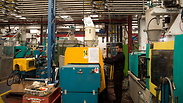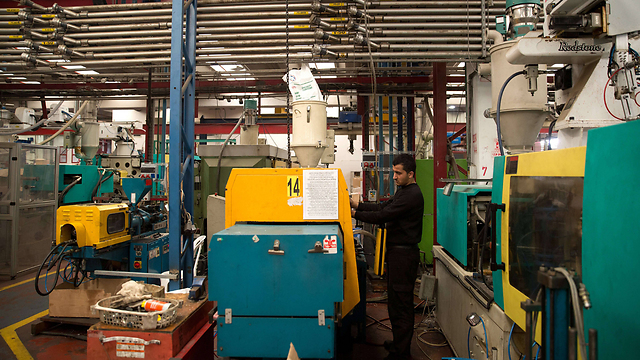
Photo: AFP
צילום: AFP
US: EU's labeling of West Bank products not a boycott
Obama administration expresses support for EU decision to label products from settlements in West Bank; 'Objective is to provide consumers with correct information on origin of products.'
The Obama administration said Thursday it doesn't consider a new European Union rule outlawing "Made in Israel" tags on goods from the West Bank as a boycott of the Jewish state, only a technical guideline for consumers.
The long-awaited EU rule has triggered a fierce backlash from the Israeli government.
The US clarified its position a day after the decision by the EU, which applies to goods produced in Israeli settlements on the West Bank. Israeli Prime Minister Benjamin Netanyahu blasted the 28-nation bloc as "hypocritical" and accused the EU of double standards. One of his Cabinet members called the rule "disguised anti-Semitism." Even Israeli opposition figures chimed in with criticism.
"We do not believe that labeling the origin of products is equivalent to a boycott," State Department spokesman Mark Toner said. "And as you know, we do not consider settlements to be part of Israel. We do not view labeling the origin of products as being from the settlements as a boycott of Israel."
Before the EU acted, the US position was more ambiguous. Toner and other officials stressed only that Washington opposed any boycotting of Israel, while saying the EU's response "shouldn't come as a surprise" given Israel's continued construction of settlements on land the Palestinians seek for their future state.
US support for the EU was stronger Thursday.
"We understand the objective is to provide EU consumers correct information on the origin of products, as required by EU law," Toner said. "The EU has made clear that measures are not a boycott, and the EU has also made very clear that they oppose boycotts against Israel. EU guidelines for products that are sold in EU countries are for the EU to determine."
Toner said the labeling rule only clarifies existing European regulations and wasn't a "new measure."
"These are technical guidelines delineating the origin of products. Consumers will then be aware of the origin of a product when purchasing it, as they are made aware for products across the globe," he said.
American laws for Israeli settlement exports are somewhat similar, Toner said. They must be marked as "products of the West Bank," though the US does not differentiate between goods from settlements and those coming from elsewhere in the territory.
Democratic and Republican administrations have opposed Israel settlement activity since 1967, as has most of the international community, deeming it a hindrance to a peace agreement that establishes an independent Palestine alongside Israel. Today, 600,000 Israelis live in the West Bank and East Jerusalem, almost 10 percent of the country's Jewish population. The two areas were captured by Israel in the 1967 war.
The economic impact of the EU's step is likely to be minimal. While the EU is Israel's largest trade partner, settlement products account for less than 2 percent of Israel's 13 billion euro ($14 billion) exports to Europe each year. Still, the move is highly symbolic, signaling Europe's growing discontent with Israel amid a long, diplomatic deadlock in the Mideast peace process.
Once implemented, European consumers will be able to read on the label of most products - including agricultural goods, olive oil, cosmetics and wines - if they were produced in Israeli settlements. Although such products will not be banned, Israel fears the labels will be a political stigma and could lead to a fuller boycott.











